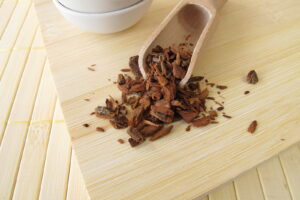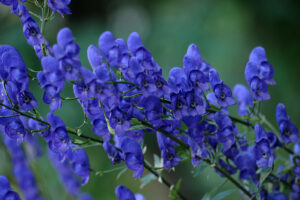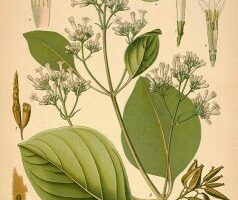
Boericke on China Officinalis (Chin.)
China Officinalis (Cinchona Officinalis or Peruvian Bark) Debility from exhausting discharges, from loss of vital fluids, together with a nervous erethism, calls for this remedy. Periodicity is most marked. Sensitive to draughts. […]

Boericke on Aconitum Napellus
Aconitum Napellus (Monkshood) A state of fear, anxiety; anguish of mind and body. Physical and mental restlessness, fright, is the most characteristic manifestation of Aconite. Acute, sudden, and violent invasion, with fever, […]
Day 30: Arsenicum Jill’s Case Notes
Arsenicum Jill: 28-year-old female. Main complaints: hay fever, asthma, anxiety, eczema, sleep disturbances, stomach pain, exhaustion. Mental-emotional: Anxious and worries a lot. Worries she could die – especially when awake at night. […]

Introduction to Remedy Relationships
(Note: a key to remedy abbreviations is available at the bottom of this post.) From the early days of homeopathy it was noticed that patterns or relationships often existed between […]

Provings (Pathogenetic Trials)
Homeopathic remedies are tested on healthy volunteers rather than the unwell to reveal which symptoms each remedy has the potential to treat. Find out why.

Potentisation – What is It?
The discovery of potentisation put an end to the dangerous side-effects of some homeopathic remedies and opened the door to safe treatments for all.
Homeopathy in 30 Days: True or False (1)
Lessons 1 – 7 During fever, someone who needs Arsenicum album may have a hot head and cold body. By using homeopathy, a person can stay healthy even though they […]

Remedy Responses: What They Mean (Part A)
With homeopathic treatment results vary from person to person - some results are dramatic and profound while others are mild or almost unnoticeable. We explain why.

The Cinchona Experiment
Have you ever wondered how homeopathy came into being? The answer lies with German polymath, a text on malaria, and a poorly understood law of nature.




